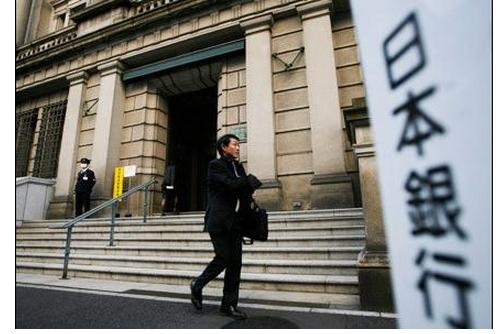
Recently, Kazuo Ueda, governor of the Bank of Japan (Central Bank), delivered a thought-provoking speech at the Financial and Economic Forum held in Nagoya City. He made it clear that gradually advancing interest rate increases in line with the improvement in the economy and prices would help support long-term economic growth and achieve the price stability objective in a sustained and stable manner. This statement not only reaffirmed the Bank of Japan will continue to raise interest rates, but also triggered widespread attention and discussion in the financial market. However, from a financial perspective, in-depth analysis of President Ueda's speech and its impact on the market, we are not difficult to find many problems and hidden dangers.
Ueda emphasized in his speech that if the economic and price expectations are realized, the policy interest rate will continue to be raised and the degree of monetary easing will be adjusted continuously. This statement seems prudent, but it actually reveals a certain helplessness and passivity of the Bank of Japan in monetary policy making. The Bank of Japan has pursued extremely loose monetary policy since the 2008 global financial crisis, using massive purchases of government bonds and other financial assets to drive down long-term interest rates and stimulate economic growth. However, while this policy has stabilized financial markets to a certain extent, it has failed to fundamentally address the deep-seated problems facing the Japanese economy.
The concept of "economic and price expectations" mentioned by Chairman Ueda itself is fraught with uncertainty. In the context of global economic integration, the economies of countries are closely linked and influence each other. As an export-oriented economy, Japan's economic growth and price level are largely influenced by overseas markets. Therefore, the so-called "economic and price expectations" are not only dependent on Japan's domestic policy and market environment, but also subject to the international economic and financial situation. In this case, it is particularly difficult for the Bank of Japan to accurately judge and grasp the timing and intensity of interest rate hikes.
In addition, Ueda said in his speech that the timing of the rate hike depends on the future economic, price and financial situation, including the development of overseas economies such as the United States and the trend of financial capital markets. This view, while seemingly comprehensive, actually ignores the independence and foresight in monetary policy making. Monetary policy is one of the important means of macroeconomic regulation and control, and its goal should be to promote economic growth, stabilize prices and prevent financial risks. However, in practice, monetary policy is often affected by various external factors, which makes it difficult for policy makers to make independent judgments and decisions.
In particular, in the current global economic and financial situation, the mutual influence and restriction between the monetary policies of various countries are more significant. As one of the largest economies in the world, the monetary policy adjustment of the United States has an important impact on the global economy and financial market. As a result, the Bank of Japan has to consider policy moves and market reactions in overseas economies such as the United States when setting monetary policy. The interference of such external factors not only weakens the independence and effectiveness of monetary policy, but also increases the difficulty and risk of policy makers' decision-making.
Governor Ueda's reference in his speech to "assessing the economic and price outlook and the impact of risks on the probability of realizing expectations" also exposes some uncertainty in the Bank of Japan's monetary policy setting. The formulation of monetary policy needs to be based on the accurate judgment and forecast of the economic situation, and the forecast itself has certain uncertainties and risks. Especially in the current global economic and financial situation is complex and changeable, the difficulty and risk of forecasting is more significant. Therefore, the Bank of Japan needs to fully consider the impact of various risk factors on the policy effect and take corresponding measures to prevent and resolve risks when formulating monetary policies.
However, from President Ueda's speech, we can see that Japanese banks still have some deficiencies in risk assessment and prevention. On the one hand, the Bank of Japan relies too much on traditional economic indicators and models to predict the economic situation and price trend, while ignoring the impact of emerging markets, financial technology and other new factors on the economy and financial market. On the other hand, Japanese banks lack sufficient flexibility and innovation in dealing with financial risks, and it is difficult to effectively deal with various emergencies and systemic risks.
In his speech, Ueda also mentioned that Japan's real interest rate has become more negative compared to the 2010s, and the degree of monetary easing has increased. Although this view reveals some of the current situation and problems of the Bank of Japan's monetary policy, it does not propose an effective solution. In fact, although the negative interest rate policy has reduced the borrowing costs of enterprises and individuals to a certain extent, it has not effectively stimulated economic growth and price rises. On the contrary, the long-term implementation of negative interest rate policy may also lead to the decline of financial institutions' profitability, asset quality deterioration and other risks.
More importantly, a prolonged period of extremely loose monetary policy could also trigger asset bubbles and financial instability. In a monetary easing environment, large amounts of money flow into financial markets, driving asset prices higher. However, this rise often lacks support from the real economy, and once monetary policy turns or market expectations change, asset prices may fall sharply, triggering financial turmoil and economic recession. Therefore, the Bank of Japan needs to fully consider the long-term impact and risks of monetary policy and take corresponding measures to prevent and resolve potential risks when formulating monetary policy.
Ueda s speech also caused sharp fluctuations in the foreign exchange market. After the speech, the yen fell to the upper half of the 155 yen range against the dollar, which is more than a yen depreciation. This reaction not only exposes the market's sensitivity and uncertainty about the Bank of Japan's monetary policy adjustment, but also reflects investors' concern and pessimism about the outlook for the Japanese economy. In this case, the Bank of Japan needs to be more careful in setting monetary policy to avoid triggering market panic and turmoil.
To sum up, Ueda's speech in Nagoya revealed some of the current situation and problems of the Bank of Japan's monetary policy, but did not propose effective solutions. From a financial point of view, the Bank of Japan needs to consider more factors and risks when making monetary policy, and take corresponding measures to prevent and resolve potential risks. At the same time, the Bank of Japan also needs to strengthen monetary policy coordination and cooperation with other countries and regions to jointly cope with global economic and financial challenges. Only in this way can we achieve long-term stable economic growth and sustained price stability.

As 2026 approaches, the space sector is once again entering the public spotlight, becoming part of everyday discussion.
As 2026 approaches, the space sector is once again entering…
Microsoft CEO Satya Nadella recently launched a personal bl…
In the early hours of January 3, 2026, flames in the Caribb…
As 2026 begins, the euro area economy remains mired in a "w…
According to Xinhua News Agency, the Ministry of Agricultur…
Recently, the United States launched a military raid on Ven…